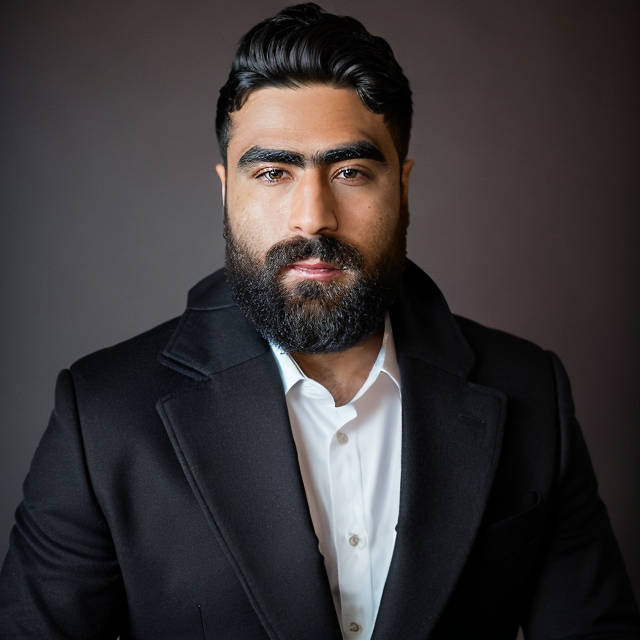AYU Member Spotlight: Revant Nayar of FMI Technologies
Revant Nayar, CTO of FMI Tech and CIO of Princeton AI is a pioneer in quantum and econophysics-based asset and risk management, earning recognition
as a promising figure among the new wave of quant fund managers.
Hi Revant, what are you working on today?
At FMI, we are always working on proprietary strategies at the forefront of physics, mathematics and quantitative research with an emphasis on quantum AI and complexity science. At this moment, we are also currently working on implementing novel hedging techniques with well-known financial mathematician Raphael Douady, who is involved with the firm as an Advisor.
In addition to research in alpha and risk management, we also undertake some research projects that can also benefit the public good. Over the summer we received a government grant to research techniques for financial crash prediction based on physical theories of phase transitions, with a Stony Brook Professor and student. In the Fall, we worked with students from UCLA on hedging and flash crash prevention. Currently, I am part of another research collaboration with Stony Brook University on group theory and options pricing, finishing work started with Peter Carr a couple of years ago.
How did you get to where you are now?
My journey began at the Physics Department at Princeton, where I got interested in the problem of studying financial markets as complex systems while engaged in graduate level research in theoretical physics. After a year developing algorithmic software products for hedge funds, I took over as Research Affiliate at NYU in 2020, researching physics-inspired options pricing techniques with Peter Carr. I started Princeton AI as the first quantum AI asset manager in the Indian market in early 2021. In 2022, I took over as CTO/CIO at FMI Tech, which was just launching the first quantum AI strategies in the US market and helped scale them up in SMAs in 2023. As I have grown into various roles, I have sought to strike a balance between technical work, and leading other quants and developers on our team and our academic partners.
What attracted you to this business?
On a purely intellectual level, the challenge of forecasting financial markets is unrivaled by any other forecasting challenge in the world. This is because, unlike most systems in nature and humanities, financial markets break practically all the simplifying assumptions we are used to in standard statistics and physics- namely, stationarity, unitarity, locality, Gaussianity. Therefore, to succeed as a quant, one has to often invent new mathematical techniques that are not used in canonical mathematics and data science. The second challenge is that most anomalies or “low hanging fruit” are already arbitraged away. So, one is rewarded in quant for finding anomalies not widely known by other market participants. One would be hard pressed to find another discipline where disruptiveness and contrarian thinking are as valuable.
In addition, as a quant, one gets to work with sharp minds from a variety of quantitative disciplines, from engineering to theoretical physics to computer science. The fact that we have a very short feedback loop keeps a quant brutally honest and forces him to innovate in ways that academia does not.
What has been the most pivotal moment of your career so far?
A pivotal moment has been scaling FMI’s strategy in the US market, and helping build a formidable team of quants and engineers last year.
What aspect of the industry excites you the most?
No industry is a perfect meritocracy but asset management is much more a meritocracy than most others, whether it be banking, healthcare and technology. I think that is in large part due to the short and brutal feedback loops from the market that keep everyone earnest. Also, I believe that capital introduction conferences are efficiently structured and facilitate useful networking opportunities between allocators and funds; I must note that some of them, however, are often unreasonably expensive for emerging managers. I am also excited about the widespread adoption of generative AI in the asset management industry, especially over the last year or so. It can help workflow automation and greatly enhance productivity of quants and developers. Although I don’t think AI has much direct use in the alpha generation, it can certainly significantly help in risk management, hedging and order execution.
What would you change?
There is a decline in fresh emerging quantitative funds. That is in large part due to the upstart capital costs, and because there are few viable funding avenues for them outside of multi-manager platforms. I think VCs and private asset managers need to view quant funds as much more similar to a technology and research company, than an asset management firm. This would create a lot more funding opportunities for emerging managers, and promote the influx of new ideas in a field that is becoming increasingly stagnant with the same few quant strategies increasingly crowding the space as per a recent Columbia study.
In addition, emerging quant managers are usually faced with the problem that prime brokers will not onboard them before they hit a certain AUM size; this red-tapism deprives EMs of the execution and capital introduction opportunities as established funds, and further exacerbates stagnation in the quant industry.
Finally, I think the way that the performance of quants or quant funds is measured should change. I think most allocators are still not sophisticated in separating out a manager’s alpha from betas (to say momentum or other Barra-Axioma factors); they also jump in at the peak and exit at the bottom. I think more robust tools and systems for quantifying the managers true ‘alpha’ by allocators, would not only improve their returns, but also create fairer allocation opportunities for managers.
What do you invest in personally?
I invest all my capital in FMI Tech! It is not merely to signal to allocators that I have skin in the game, but also that I personally get to participate in the alpha opportunities that our fund generates.
Where do you celebrate?
I often celebrate with an overdose of spice, and that usually comes from informal Asian eateries. In New York, it usually means a toss up between Mala Project and Sarvana Bhavan. In India, my go-to is my mother’s cafe, Small World Cafe.
What is at the top of your bucket list right now?
My bucket list is littered with far too many hiking and kayaking destinations to count. Featuring prominently are several lakes and trails in the Adirondacks. In particular, I enjoy the challenge of kayaking difficult (and preferably unconquered) marshlands; I have been eyeing the Cicero Marsh in Syracuse for a while now.
What does success mean to you?
Success for me currently is to develop elegant mathematical solutions to complex problems, and robust scalable teams and systems that amplify their impact in financial markets. In the long run, it would be to create lasting impact on the world through research and philanthropy.
What’s the best piece of advice you’ve ever been given?
The best piece of advice is by my uncle, who told me that there are two arbitrages in life- to think long term when others are thinking short term, and to think principles-based when others are thinking opportunistically.

